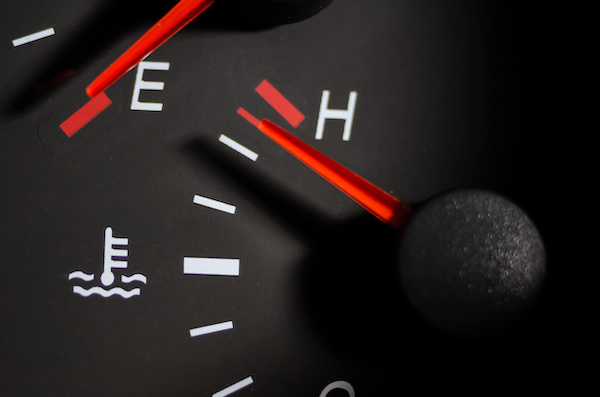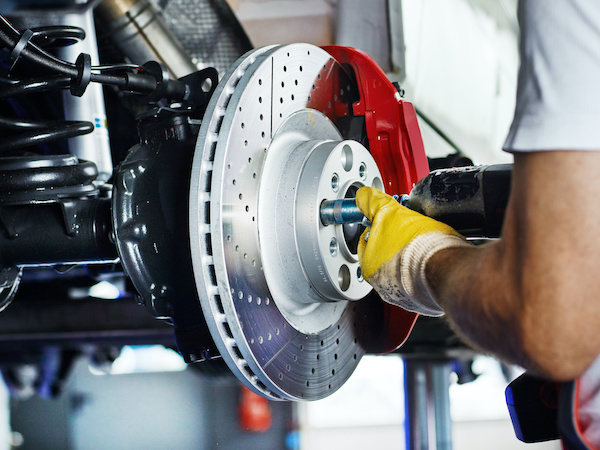Posted on 7/26/2021

Every time you run your car, your engine heats up from combustion. The heat that is generated can sometimes reach unbearable temperatures. Consequently, every vehicle is built with a cooling system to prevent the engine from overheating. The cooling system functions by expelling excess heat from the engine. Without the cooling system, you wouldn't get very far with your car. The cooling system contains many parts that work together. Some of the parts include the Radiator, Fan, Thermostat, Water Pump, and Freeze Plug. If any of these items break down, it will compromise the entire system and endanger the engine. The good news is that it is relatively straightforward to detect problems within the cooling system. Signs of a Cooling System Failure Smoke Coming From the Hood If you notice smoke appearing from your vehicle's hood, it is highly advised that you pull over on the side of the road. You will need to inspect the elements underneath the hood ... read more
Posted on 6/23/2021

Your vehicle's brakes are supposed to provide high responsiveness and performance. They should bring the car to a halt silently or with minimal sound, but it becomes a matter of concern if they squeak. Therefore, it is critical to consider a professional brake inspection from an expert auto technician. Still, squealing brakes isn't always an indication of failing or bad brakes. The sound depends on various factors. It is not uncommon to hear the squealing when you brake at low speeds. Read on to learn about situations that could cause the brakes to screech. When Stopping Automakers usually place a metal inside the brake pads to indicate the wear limit. That's why you'll hear the screeching sound when you try to stop your car. The sound comes because of the contact between the metal plate and the rotors. When that happens, it would be best to get the brake pads replaced. At Low Speeds Several factors can cause the brakes to squeal at low speeds. For instance, some h ... read more
Posted on 5/19/2021
.jpeg)
The most known simple and inexpensive way to prevent wear and tear of your car engine is to check and replace car fluids. This is a great way to not only keep your vehicle in top-notch condition but also save your bucks at the auto shop. While many car owners might deem this process as straightforward, it calls for some know-how. For instance, to completely flush the old fluid requires you to cleanse and rinse the whole system with a specialized cleaner or running water to get rid of any grime or grit that might have accumulated. That said, here are the most important fluids that should be constantly checked and changed in your car. Brake Fluid Brake fluid is a very important fluid that is meant to add power to your braking system. Although brake fluid flush isn't done constantly, it is important to keep an eye on it and replace it when you notice that it's rust-colored or has become overheated. Most car manufacturers recommend that you flush your brake fluid after 24,000 mi ... read more
Posted on 4/23/2021
.jpeg)
It's embarrassing and inconvenient if your car won't start. There are many reasons why a vehicle won't start, and commonly it's an indication of a starter failure. Many factors affect starters, for instance, eroded connections, wiring issues, and your car's battery status. Here are some common signs of a failing starter. Noise A clicking, grating or humming noise when starting your car may well be the first sign of starter trouble, but not all failing starters are noisy. In general, any abnormal noise should be investigated as it usually predicts trouble. Lights Both your car's battery and starter need to be functional for the vehicle to start. If you attempt to start your vehicle but only see dashboard lights without a response from the engine, you should check your starter. The illuminated lights indicate that the battery is not the problem. Smoke An overheated starter may smell like smoke, or you may see smoke coming from the engine. Failure to jumpsta ... read more
Posted on 3/16/2021
.jpeg)
When it comes to daily car check routines, most drivers ignore or forget to check the tire pressures before taking off. The result might be unpleasant scenarios as drivers get stuck on the road due to deflated tires. It has also impacted the tires' longevity, leading to constant tire replacements that are costly due to the wear and tear of driving under low tire pressure. At the same tire, driving with overinflated tires beyond the manufacturer's recommendation causes damage to the tires with time. Properly inflated tires are among the easy strategies to ensuring a tire remains functional for some time, placing significant value on the money spent with tire purchases. They guarantee safety when driving and improve the fuel economy. Regularly checking the tires is a simple yet essential routine to have every day before driving out of your home/ How Often Should I Check My Tire Pressure? As a simple and effort-free activity, check your tires for pressure visually daily before ... read more